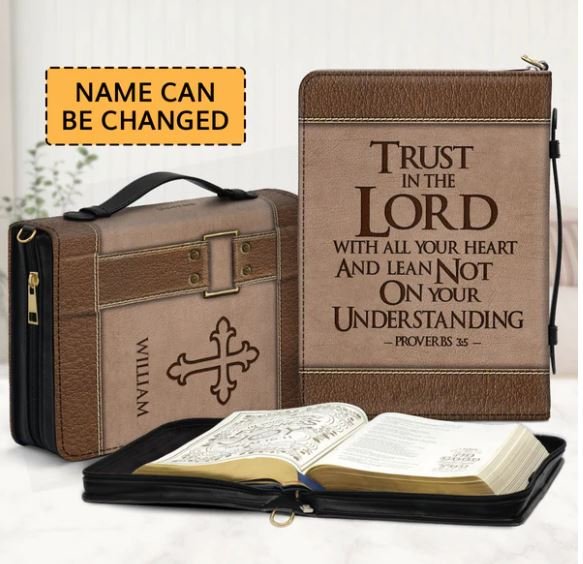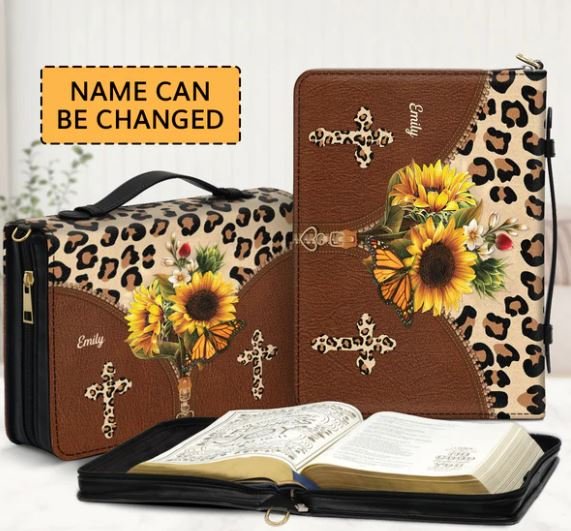In God We Trust - But Do We?
As an Amazon Associate, I earn from qualifying purchases. This page contains affiliate links. If you choose to make a purchase after clicking a link, I may receive a commission at no extra cost to you.
Visit our Holy Spirit Gear Store- - - - - ->>> HERE <<< - - - - - - New items Weekly
In the tapestry of American ethos, few phrases resonate as deeply as "In God We Trust." Etched into currency and woven into the fabric of national identity, it serves as a constant reminder of the foundational role faith is meant to play in our lives. Yet, as I sit to ponder this omnipresent maxim, a question arises from the depths of my reflection: Do we truly trust in God, or have these words become mere symbols, devoid of the profound faith they are meant to signify?
Growing up in a family where Sunday church services were as regular as meals, the concept of trusting in God was instilled in me from a young age. Yet, as I ventured into the world, the simplicity of childhood faith met the complexity of adult challenges. It's one thing to recite "trust in God" when skies are clear; it's another to cling to these words amidst the storms of life.
Proverbs 3:5-6 offers a beacon of wisdom, "Trust in the LORD with all your heart and lean not on your own understanding; in all your ways submit to him, and he will make your paths straight." These words, a cornerstone of my faith, guide the exploration of this deeply personal and universally relevant question. As we journey through historical context, personal anecdotes, and scriptural insights, my hope is to uncover not just the layers of meaning behind "In God We Trust" but also to reflect on the authenticity of our collective and individual faith.
The Historical Context of Trusting God
The phrase "In God We Trust" is more than a motto; it's a historical beacon that has guided nations through turmoil and triumph. Its roots are deeply embedded in the collective memory of society, serving as a reminder of the foundational role faith has played in the endurance and prosperity of civilizations. Reflecting on the journey of this phrase through history, I am reminded of the countless moments when faith in a higher power was all that communities had to cling to in times of despair.
My personal journey of understanding the historical context of faith began with reading about the trials and tribulations faced by early believers. These stories of unwavering faith in the face of persecution, famine, and war paint a vivid picture of the profound trust in God that has characterized believers throughout history. It is in these stories that I found a deeper appreciation for Psalm 9:10, "Those who know your name trust in you, for you, LORD, have never forsaken those who seek you." This scripture resonates with the historical narrative of faith, reminding us that trust in God is not a modern invention but a timeless foundation upon which societies have been built.
In the United States, "In God We Trust" was first placed on coins during the upheaval of the Civil War, a period marked by division and despair. This decision was not merely symbolic; it was a declaration of the nation's reliance on divine providence for guidance and strength. As I dive into this period, I see parallels in my own life, where faith has served as a compass during personal battles. The historical context of trusting God teaches us that our ancestors' faith was not passive; it was an active, deliberate choice to rely on God's wisdom and strength beyond human understanding.
This historical journey is not just about understanding the past; it's about drawing strength from the legacy of faith that has been passed down through generations. It challenges me to reflect on my own trust in God, especially in moments of uncertainty. Do I possess the same depth of faith as those who came before me? Am I willing to place my trust in God, as they did, even when the path forward is unclear?
The Modern Dilemma of Faith
In the modern world, the challenge of maintaining faith often feels like navigating a labyrinth of skepticism, scientific discovery, and societal change. The straightforward faith of our ancestors seems at odds with today’s complex landscape, where trust in God must coexist with a relentless flow of information that questions the very foundation of belief. My own journey of faith has not been immune to these challenges. The more I have ventured into the realms of education, career, and social discourse, the more my foundational beliefs have been tested.
There was a moment, not too long ago, when the harmony between science and faith felt like an impossible chord to strike. I found myself standing at the crossroads of belief and skepticism, grappling with questions that seemed to have no clear answers. It was during this period of doubt that I was drawn to the story of Peter walking on water towards Jesus in Matthew 14:31. When Peter saw the wind, he was afraid and began to sink, crying out, "Lord, save me!" Immediately, Jesus reached out his hand and caught him, saying, "You of little faith, why did you doubt?" This passage spoke to me deeply, reminding me that faith is not the absence of doubt, but the courage to trust in God even when the winds of uncertainty howl around us.
The modern dilemma of faith is not just a personal struggle; it reflects a broader societal shift towards secularism and away from traditional religious beliefs. In this context, "In God We Trust" can sometimes feel like a relic of a bygone era rather than a guiding principle for living. Yet, as I reflect on my own experiences, I realize that trust in God is not incompatible with a modern, informed worldview. Rather, it is the lens through which we can view our discoveries and debates, finding deeper meaning and purpose beyond the material.
One of the most profound realizations in my journey has been the understanding that faith and reason are not adversaries but allies in the quest for truth. The Bible itself encourages the pursuit of knowledge, with Proverbs 18:15 stating, "The heart of the discerning acquires knowledge, for the ears of the wise seek it out." This scripture reassures me that seeking understanding, whether through science, philosophy, or art, is a journey that can lead us closer to God, not further away.
As we navigate the modern dilemma of faith, the challenge is not to choose between faith and understanding but to integrate them. Trusting in God in the 21st century means embracing the complexities of the world, armed with the conviction that faith can withstand the scrutiny of reason and that, in the vast expanse of the unknown, there is room for wonder, discovery, and a deeper reliance on the divine.
Personal Trust vs. Societal Trust
Navigating the terrain between personal trust in God and the broader societal expression of this trust presents a unique set of challenges. On one hand, personal faith is intimate, shaped by individual experiences, struggles, and revelations. On the other, societal trust in God is often manifested through cultural norms, public declarations, and collective rituals. This dichotomy becomes particularly evident as we consider the phrase "In God We Trust" not only as a national motto but as a reflection of our personal commitment to faith.
In my own life, I've encountered moments where my personal trust in God diverged significantly from the societal expressions of faith I observed around me. There were times when the public proclamation of trust felt shallow, a mere formality disconnected from the profound, often tumultuous journey of genuine faith. It led me to question, do we, as a society, embody the trust we so boldly declare? Romans 12:2 has been a guiding light in these moments, urging me, "Do not conform to the pattern of this world, but be transformed by the renewing of your mind. Then you will be able to test and approve what God’s will is—his good, pleasing, and perfect will." This scripture speaks to the heart of the matter: the importance of cultivating a personal, transformative faith that stands apart from societal norms and expectations.
The contrast between personal and societal trust in God is perhaps most apparent in times of crisis. When tragedy strikes or injustice prevails, the collective cry for divine intervention often rises to a crescendo. Yet, it's in the quiet aftermath, in the personal wrestling with grief and injustice, that true trust in God is forged. These are the moments that test the depth of our faith, pushing us beyond the comfort of communal rituals into a deeper, more personal reliance on God's wisdom and strength.
This journey towards a personal trust in God amidst a society that often espouses faith in a more ceremonial manner has taught me a valuable lesson: trust in God is not a static declaration but a dynamic, evolving relationship. It requires us to engage with our beliefs actively, to question, to seek, and ultimately, to find a faith that is both deeply personal and profoundly communal.
The Role of Adversity in Trusting God
Adversity, an inevitable companion on life’s journey, often arrives unannounced, bringing with it pain, confusion, and the profound questioning of our beliefs. It is in these moments of trial that the depth of our trust in God is truly tested. Personal experiences of loss, failure, and heartache have not only challenged my faith but have also provided the fertile ground for its growth. The journey through adversity has taught me that trust in God does not mean the absence of hardship, but finding strength and hope in His presence amidst the storm.
Reflecting on my own battles, I recall times when the path ahead seemed shrouded in darkness, and God's presence felt distant. Yet, it was in the depth of despair that I found the most profound sense of God's closeness. James 1:2-4 offers a powerful perspective on this, "Consider it pure joy, my brothers and sisters, whenever you face trials of many kinds, because you know that the testing of your faith produces perseverance." This scripture became a beacon of light, guiding me to understand that adversity is not a punishment, but a pathway to deeper trust and resilience.
The process of trusting God through adversity is akin to the refinement of gold through fire. It is a purification process that strips away the superficialities of faith, leaving behind a trust that is pure, robust, and unshakeable. This purification has led me to embrace my trials not as obstacles but as opportunities to witness the strength of God's support and guidance.
Moreover, adversity has a way of stripping away the illusions of control, reminding us of our inherent vulnerability and dependence on God. It teaches us that our strength is not in our ability to avoid the valleys of life but in our willingness to walk through them, hand in hand with God. In these valleys, I've learned to echo the sentiment of Psalm 46:1, "God is our refuge and strength, an ever-present help in trouble." This assurance has been a cornerstone of my trust in God, providing peace and stability in the most tumultuous times.
Recommended Books to Further Study the Subject
In closing, the role of adversity in trusting God cannot be overstated. It shapes our faith, molds our character, and deepens our reliance on God in a way that calm seas never could. As we emerge from the crucible of trials, our trust in God stands not as a fragile hope but as a testament to His enduring faithfulness and strength.
Through the exploration of "In God We Trust - But Do We?", we've journeyed from the historical roots of this profound declaration to the personal and societal dilemmas of faith in the modern age. We've delved into the contrast between personal trust and societal expressions of faith, and the transformative role of adversity in deepening our trust in God. This journey has been a testament to the enduring strength and relevance of faith, a reminder that true trust in God is not just a phrase but a lived experience. As I reflect on this exploration, I am reminded of Philippians 4:13, "I can do all this through him who gives me strength." This scripture encapsulates the essence of our journey, affirming that our trust in God is the wellspring of our strength, resilience, and hope.
This article has endeavored to weave personal narrative with scriptural insights, offering a reflective exploration of what it means to truly trust in God. It's my hope that this journey encourages others to reflect on their own faith, finding in it a source of strength, guidance, and unwavering trust in the divine.















